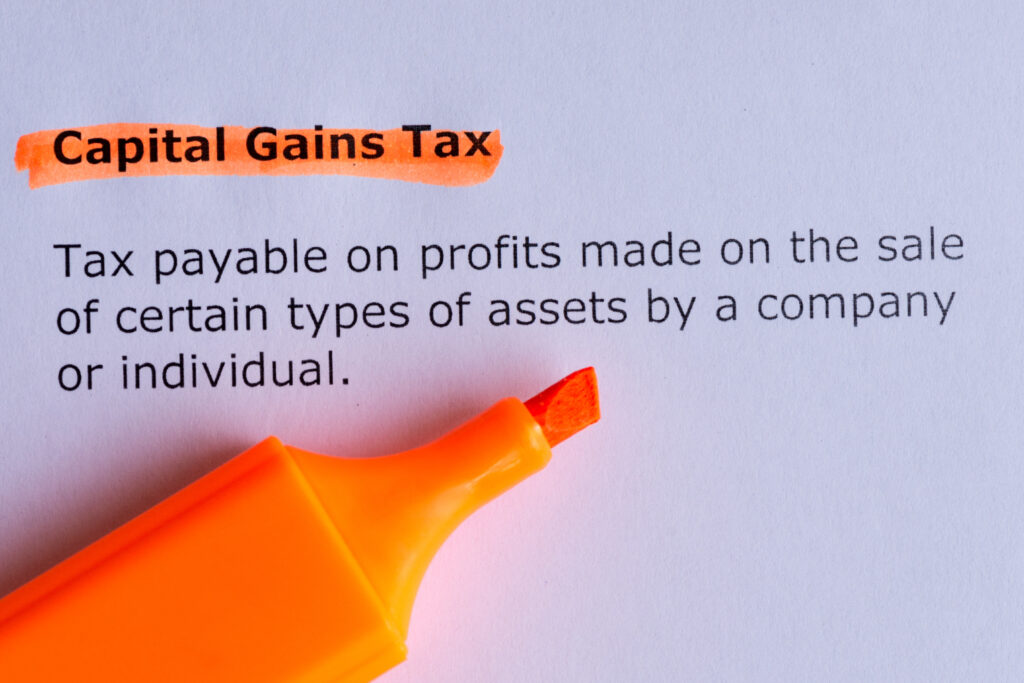
When it comes to selling a business or investments, one critical aspect that often gets overlooked is the capital gains tax. Understanding how this tax works can help you make informed decisions and maximize your financial outcomes. In this blog post, we’ll explore what capital gains tax is, how it applies to selling a business or investments, and some strategies to minimize your tax liability.
What is Capital Gains Tax?
Capital gains tax is a tax on the profit you make from selling an asset. The profit, known as the capital gain, is calculated as the difference between the selling price and the original purchase price (or basis). In the United States, capital gains tax rates depend on how long you held the asset:
- Short-term capital gains: Assets held for one year or less are taxed as ordinary income, meaning they are subject to your regular income tax rate.
- Long-term capital gains: Assets held for more than one year benefit from lower tax rates, which currently range from 0% to 20% based on your income level.
Effects on Selling a Business
When selling a business, the capital gains tax implications can be more complex than selling other types of investments. Here are a few key points to consider:
- Asset vs. Stock Sale: The structure of the sale (asset sale vs. stock sale) can significantly affect tax liability. In an asset sale, the seller may pay capital gains tax on the sale of individual assets (e.g., equipment, real estate) and ordinary income tax on the sale of inventory. In a stock sale, the seller typically pays capital gains tax on the entire sale price.
- Section 1202 Exclusion: If you qualify as a small business under IRS guidelines, you may be eligible for the Section 1202 exclusion, which allows you to exclude up to 100% of the capital gains from the sale of qualified small business stock (QSBS) held for more than five years. This can lead to significant tax savings.
- Depreciation Recapture: If you’ve claimed depreciation on business assets, you may be subject to depreciation recapture tax when you sell the business. This means that the IRS may tax a portion of your gain as ordinary income, potentially increasing your overall tax liability.
Effects on Selling Investments
When selling investments, such as stocks, bonds, or real estate, the capital gains tax rules apply similarly, but there are specific nuances to consider:
- Real Estate: If you sell real estate, you may be eligible for the primary residence exclusion, which allows you to exclude up to $250,000 ($500,000 for married couples) of capital gains on the sale of your primary home, provided you meet certain ownership and use tests.
- Investment Losses: If you have investments that have lost value, you can offset your capital gains with these losses through a process called tax-loss harvesting. If your losses exceed your gains, you can use up to $3,000 of excess losses to offset ordinary income and carry forward any remaining losses to future tax years.
- Holding Period: To qualify for the lower long-term capital gains tax rate, consider holding your investments for more than one year. This strategy can result in substantial tax savings.
Strategies to Minimize Capital Gains Tax
- Timing Your Sale: If you’re close to a lower tax bracket, it may be beneficial to time the sale of your assets accordingly. Consider waiting until the following tax year if it could save you money.
- Investing in Opportunity Zones: By reinvesting capital gains into qualified opportunity funds, you may defer or even reduce your capital gains tax liability. This strategy encourages investment in economically distressed areas.
- Utilizing Retirement Accounts: If you sell investments within a tax-advantaged account like a 401(k) or an IRA, you can defer taxes until you withdraw funds, potentially lowering your overall tax burden.
- Business Exit Maximization: If you plan to sell your business or investment property in the future, you can set up a plan designed to help with capital gains tax and maximize the proceeds on that sale using a tax advantaged account.
- Installment Sale: a sale paid for in installments. While that may not sound ideal, it can be a huge benefit to sellers who want to keep their income low for tax reporting purposes or to avoid a large capital gains payment. Unlike Business Exit Maximization, you don’t get all of your money at once, so there’s still tax to be paid every year, so you assume the risk of capital gains tax rates increasing in the future, and the credit risk of your buyer. While this can be an excellent plan for tax purposes, there’s better options.
Conclusion
Understanding capital gains tax is crucial for anyone looking to sell a business or investments. By considering the type of sale, holding periods, and potential deductions or exclusions, you can strategically manage your tax liability. Always consult with a tax professional to ensure that you’re making informed decisions and taking full advantage of any tax-saving opportunities available to you. With the right planning and knowledge, you can maximize your profits and minimize your tax burden.

5 responses to “What Business Owners Need To Know About Capital Gains”
[…] company culture, which can impact employees and customers. There’s also the looming capital gains tax coming at the end of the sale. There are strategies we can help you implement to reduce or mitigate […]
[…] from your policy’s cash value at low or even zero cost, allowing you to mitigate or recapture capital gains and keep more of your wealth. To do this, you must work with a professional in advance to make sure […]
[…] capital gains from mutual funds or real estate investment trusts (REITs) and are taxed at favorable capital gains […]
[…] business sales, and high-value asset transactions. By structuring a sale this way, you can manage capital gains tax more […]
[…] capital gains on big […]